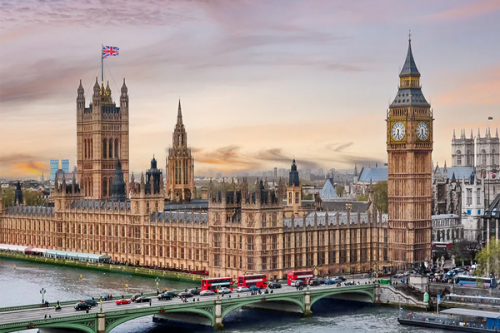Economic challenges ahead of Britain's new Labour government

London, July 8 (IANS) The ascension of the Labour government has injected rare impetus into Britain's capital market.
On Friday, the first day of the newly-elected Labour government, the domestically-focused FTSE 250 index rose by 0.86 per cent and the country's 10-year bond yield dipped by 0.8 percentage points, reports Xinhua news agency.
The GDP for the first quarter this year increased by 0.6 per cent, and the annual Consumer Prices Index rose by 2 per cent in May, aligning with the anticipated interest rate cut by Bank of England.
The Labour government inherited a comparatively strong economy. However, it also faced an economy with significant inertia. There remains a large gap between the current productivity rate and pre-pandemic levels, and investment rates are low compared to other developed countries. The Labour government faces substantial challenges in revitalising the economy.
Low Investment
Data from the Economics Observatory showed that the overall investment rate in Britain fell from a high of around 23 per cent of the GDP in the late 1980s, to around 17 per cent from 2000 onwards. In contrast, investment rates among its peers in G7 countries remained largely between 20 and 25 per cent.
The primary focus for the new Labour government should be on investment, Tim Besley, Professor of Economics and Political Science at London School of Economics and Political Science (LSE), told Xinhua.
"When you talk with economic heavyweights or entrepreneurs, they will tell you that it's very hard to see the strategic direction of the UK economy and the institutional framework that will deliver economic targets," said Besley.
However, it may take time for Labour to form a coherent industrial strategy and plan.
Steve Nolan, senior lecturer in economics at Liverpool John Moores University, said that the Labour Party fought a cautious campaign and their future economic plans are fairly slim.
Infrastructure could be a key area for attracting investments. The Labour government is set to establish a National Infrastructure and Service Transformation Authority, which will focus on infrastructure delivery and play a critical role in setting the path for development.
"If it's structured right, there is potential for the UK to address the low level of investment," said Besley.
Tax Rate
Tax policy has been a contentious issue during Britain's general election campaign, with former Prime Minister Rishi Sunak repeatedly pressing then-Labour leader Keir Starmer to clarify his stance.
In response, the Labour Party pledged not to increase income tax, national insurance, and value-added taxes.
Iain Begg, a professorial research fellow at LSE, told Xinhua that Labour has "tied their own hands by restraining from raising taxes."
"If you don't raise taxes, then the debt level will become a constraint," said Begg.
Begg noted that the public debt level in Britain is nearly 100 per cent of the GDP, in addition to a significant fiscal deficit. The Labour government should be very careful with public finances to avoid the pitfalls of former Prime Minister Liz Truss, whose policies, including substantial borrowing while maintaining low tax rates, rattled the financial markets.
"The Labour solution is to try to raise growth. Higher growth means the same level of debt comes out as a lower ratio of debt to GDP, and the Labour is hoping that they can achieve this through regulatory interventions rather than public spending," said Begg.
International Trade
The Financial Times reported last year that the Department for Business and Trade revealed a 27 per cent decrease in foreign direct investment projects in Britain for the year ending in March 2023, compared to the period from 2016 to 2017.
Besley believes it is important to provide a framework and conditions that carefully choreograph plans and strategic government support for investors.
John Bryson, chair in Enterprise and Economic Geography at the University of Birmingham, told Xinhua: "What the Labour government needs to do over the next five years is to ensure that relations with China, the US, and the EU are appropriate, positive, and constructive."
"These relationships must be constructive if the UK economy is to grow," Bryson said.

|

|

